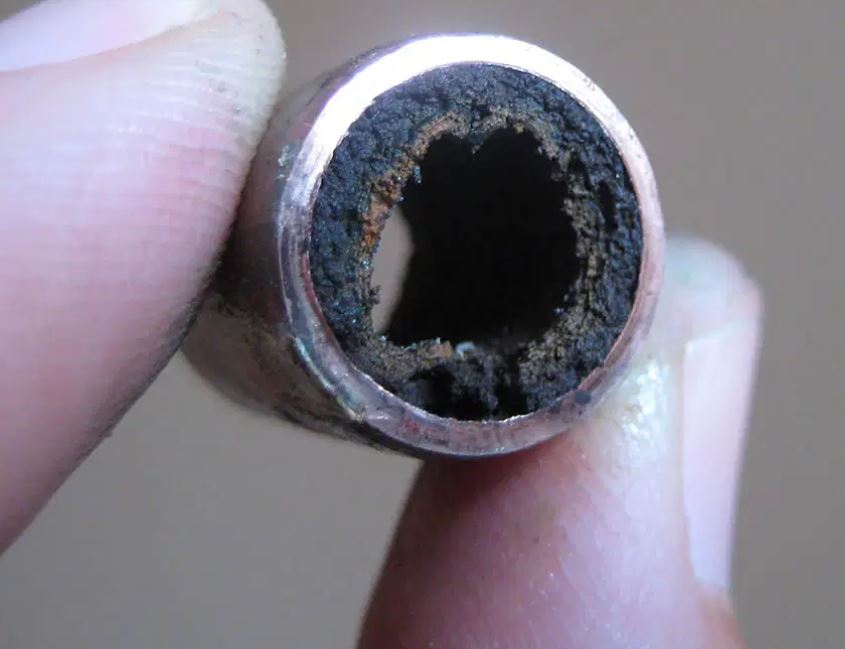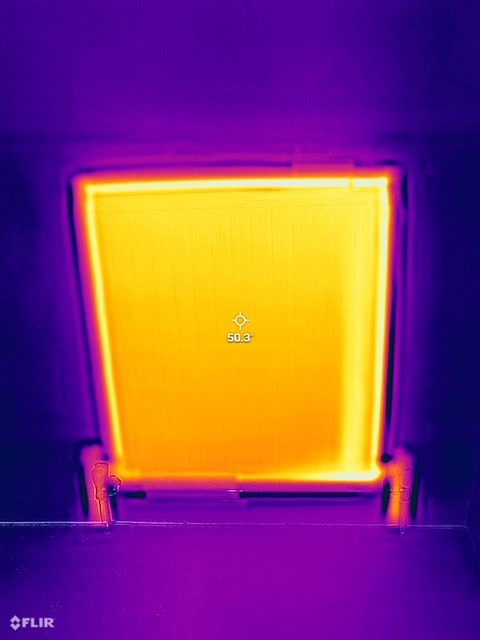Why You Should Remove Central Heating Sludge
Sludge: Seeing is Believing
Sludge or magnetite in heating system water is a major cause of heating breakdowns. But water quality isn’t usually seen or considered by the homeowner. We look, how to prevent it happening, and the importance of showing your customers why it needs to be treated.

Sludge forms from corrosion inside radiators, pipes, and soldered joints. The older the system, the more likely it is to have some heating sludge build-up.
But that doesn’t mean that newly heating systems are immune. Corrosion can start to affect boilers and radiators from day one. Indeed, leaving old water in a system unaddressed is like putting old oil in a new car.
According to independent research, 15 per cent of new boilers breakdown every year, and sludge is the cause of 60 per cent of these failures.
Sludge build-up can also affect the system’s energy efficiency as it struggles to transfer heat, radiators and pipes are blocked, and the flow of water is restricted. This means the billpayer has higher energy bills than they would have if the heating system’s water was cleaner.
In fact, Band A boilers can shift to Band E in terms of efficiency because of the damage caused by sludge.
The tell-tale signs of sludge can become apparent before the boiler breaks down. They include cold spots in radiators, kettling noises, having to turn the thermostat up, lukewarm water from taps, leaks, loss in boiler pressure, or the boiler simply turning itself off.
Once sludge starts to build up, various parts of the boiler become affected: the main heat exchanger, the plate heat exchanger, expansion vessel, pump, gas valve, automatic air vent, the fan, and even the PCB. Their performance is compromised until it invariably falters, gives up and requires remedial attention. While an automatic air vent costs less to replace, a PCB, heat exchanger or fan can cost substantially more.
Filter it out
Rust and dirt build-up can be slowed and filters can collect magnetite particles from the system water. A magnetic filter attracts magnetite of all particle sizes, catching and collecting them as the water moves around the magnet, so that they can be removed as part of annual servicing and maintenance routines. Smart filters can monitor the build-up of sludge and alert users or your heating engineer to a sludge problem before it causes a breakdown.
Adding such prevention measures can reduce annual energy bills by up to £80 a year by keeping the boiler working as efficiently as possible. Filtering out sludge prevents it from damaging the heating system, preventing potential expensive and stressful breakdowns and prolonging the boiler’s lifespan by up to seven years.
Making the invisible visible
Best practice when it comes to water testing should be worked into every install, every service, and every repair, whether the system is new or not.
While customers are often very aware that a boiler breakdown will be inconvenient, disruptive and costly, many aren’t aware how preventative maintenance can help to prevent it. On-site, laboratory-style water testing can help them understand the importance of boiler system water quality and ongoing preventative treatment options. On-site testing of the system’s water quality, including inhibitors, corrosion and pH levels, can open the door to discuss remedial actions, such as system flushing or replenishing inhibitor levels.
This type of measure is also recommended as part of Benchmark best practice when it comes to the preparation, commissioning, and maintenance of domestic heating systems.
Going for the flush
Whether you are installing a new boiler or having an older model serviced, if you find sludge is present in the system, it is best practice to remove it. Flushing can remove virtually all the magnetite through a cleaning process, without the need to remove radiators, giving a faster and more effective clean.
As most homeowners’ first point of call for maintaining and repairing their heating systems, heating engineers are not only there to eliminate sludge when it becomes problematic. While cleaning and powerflushing will stop dirty debris from doing further damage, fitting a magnetic filter to keep freshly cleansed water clean is also vital, keeping customers safe from the dangers of sludge and costly repairs.
The images below show how we found the system before fitting a filter and performing a full and thorough MagnaCleanse flush of the system


Heat Pump Design, Installation & Servicing
Boiler Services
Boiler Services
Same day boiler servicingHeating Services
Heating Services
Same day heating servicesPlumbing Services
Plumbing Services
Same day plumbersElectrical Services
Electrical Services
Same day electriciantel
office
M&E Services (Lincs) Ltd t/a M&E Services, Red Lion Quarter, Red Lion Street, Spalding, PE11 1SX
registered office
M&E Services (Lincs) Ltd. 20-22 Wenlock Road, London, England, N1 7GU. Company No: 14666876. Registered in England and Wales.

